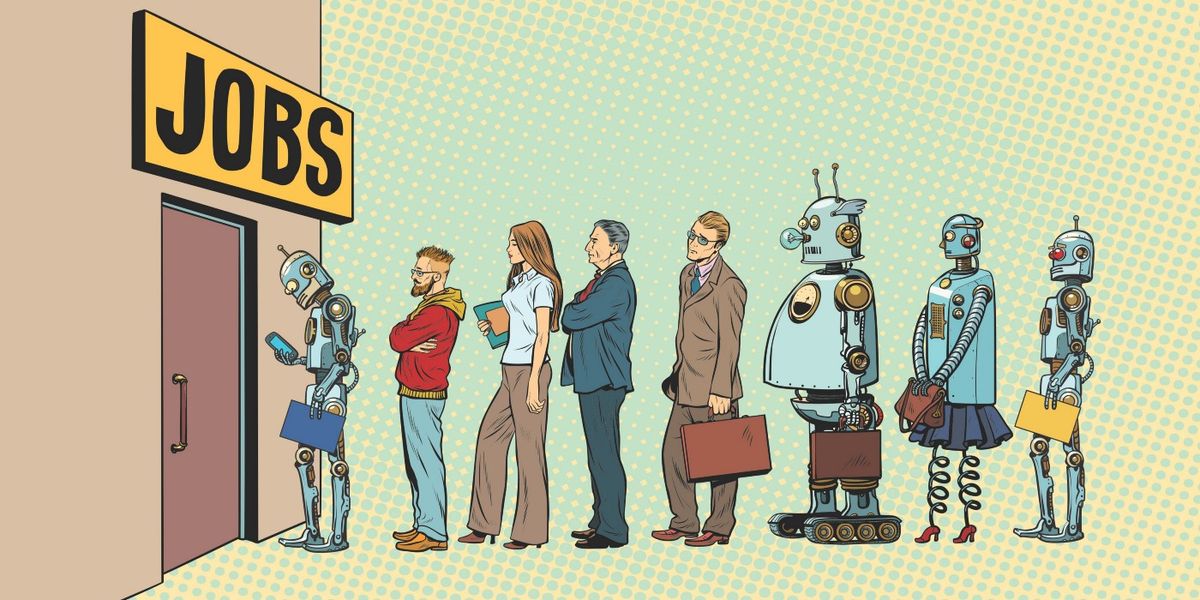Technology and automation are rapidly changing the way we live and work, and they are having a significant impact on wealth inequality. One of the most effective ways technology contributes to wealth inequality is through job displacement. As automation and artificial intelligence become more advanced, many jobs that were once done by people are being taken over by machines. This is particularly true in industries such as manufacturing and transportation, where automation has led to significant job losses.
The displacement of jobs due to technology is broader than just low-skilled jobs. Still, it also affects middle-skilled jobs, such as call center operators, data entry, and bookkeepers. As a result, many workers find it challenging to find new employment that pays as well as their previous jobs, leading to a decline in wages for many workers. This is particularly true for workers with less education and skills, who are more likely to be affected by job displacement.
The Rise of Tech Giants
Another way in which technology is contributing to wealth inequality is through the concentration of wealth among tech companies and their founders. The rise of technology giants such as Apple, Amazon, Facebook, and Google has led to a concentration of wealth among a small group of individuals. These companies have become incredibly profitable, and their founders and top executives have become some of the wealthiest people in the world. This concentration of wealth has led to a widening gap between the rich and the poor as the wealthiest individuals and companies continue accumulating more wealth.
Moreover, Technology companies and their founders also use their wealth to influence politics and policymaking, which can lead to policies that further benefit the wealthy and disadvantage the poor. This creates a vicious cycle where the rich use their wealth to gain even more power and influence, allowing them to further entrench their economic position.
However, the negative impact of technology and automation on wealth inequality is not inevitable. Several steps can be taken to mitigate the adverse effects and create a more equitable society. One solution is to invest in retraining and education programs for workers displaced by technology. This can help workers acquire the skills they need to find new employment and earn a living wage. Additionally, government policies such as a universal basic income can provide a safety net for workers struggling to find a job.
Another solution is to implement policies addressing the wealth concentration among tech companies and their founders. This can include progressive taxation, increasing the tax rate for the wealthiest individuals and companies. Additionally, regulations can be implemented to prevent monopolies and promote competition in the tech industry, which would help distribute wealth fairly.
Tech and Automation
Technology and automation are having a significant impact on wealth inequality. As automation and artificial intelligence become more advanced, many jobs once done by people are being taken over by machines, leading to job displacement and a decline in wages for many workers. In addition, the concentration of wealth among tech companies and their founders has also led to a widening gap between the rich and the poor. However, by investing in retraining and education programs, implementing universal basic income, progressive taxation, and regulations that promote competition, we can mitigate the adverse effects of technology and automation on wealth inequality and create a more equitable society.
Technology and automation are like that annoying co-worker who always finishes their work before you do and makes you look bad in front of the boss. Except, instead of just making you look bad, they're taking your job and leaving you unemployed. It's like when you're playing Mario Kart, and your little brother always gets the red shell, and you're like, "Why, God, why?"
And it's not just the factory workers and truck drivers who are feeling the burn; even the middle-skilled jobs, such as call center operators, data entry, and bookkeepers, are at risk of being replaced by robots. It's like when you're at a party, and you finally find someone to talk to, and then you realize that they're actually just a cardboard cutout. Disappointing.
And let's remember the tech companies and their founders, who are accumulating more wealth than they know what to do with. It's like when you're at an all-you-can-eat buffet and shoveling food into your face, but you're not even hungry anymore. It's just wasteful.
But there's hope we can mitigate the adverse effects of technology and automation on wealth inequality by investing in retraining and education programs for workers who have been displaced by technology. Think of it like giving a person who just lost their job a map and a compass, so they can find their way to a new job instead of just giving them a "good luck" pat on the back.
Additionally, implementing policies that address the concentration of wealth among tech companies and their founders is like putting a speed bump on the road to the top 1% to slow them down and let the rest of us catch up.
In conclusion, technology and automation are having a significant impact on wealth inequality. Still, we can mitigate the adverse effects and create a more equitable society by taking the proper steps. Remember, just like in Mario Kart, it's not about who finishes; first, it's about having fun and enjoying the ride.


